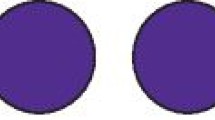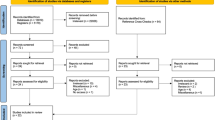Abstract
Objective To provide a systematic overview of the impact of taxing sugar-sweetened beverages (SSBs) on oral health-related outcomes.
Data sources For this PRISMA-compliant review, we searched PubMed, Scopus, Embase, Web of Science and Cochrane Central for relevant studies published from database inception to 27 August 2020.
Data selection and extraction Two reviewers assessed the abstracts and then the full text of the studies. Primary studies that evaluated the impact of any kind of SSB tax on oral health-related outcomes (that is, decayed, missing and filled teeth, caries increment and dental treatment costs) were included.
Data synthesis Of 503 search results, five studies met the inclusion criteria. All five were modelling studies, from which four studies predicted an SSB tax to have a positive impact on oral health-related outcomes, whereas one study in a developing country did not find an SSB tax to be solely successful. According to three studies, the younger population and men are likely to benefit the most from such a tax. One study demonstrated the benefits of an SSB tax to be potentially more significant among low-income individuals.
Conclusion While no empirical studies are available to support the benefits of an SSB tax, the studies covered in this review altogether anticipate a positive impact. Furthermore, this review discusses some of the obstacles and limitations of implementing such a tax predicted by the included studies.
This is a preview of subscription content, access via your institution
Access options
Subscribe to this journal
Receive 4 print issues and online access
$259.00 per year
only $64.75 per issue
Buy this article
- Purchase on Springer Link
- Instant access to full article PDF
Prices may be subject to local taxes which are calculated during checkout

Similar content being viewed by others
References
Bernabe E, Marcenes W, Hernandez C R et al. Global, Regional, and National Levels and Trends in Burden of Oral Conditions from 1990 to 2017: A Systematic Analysis for the Global Burden of Disease 2017 Study. J Dent Res 2020; 99: 362-373.
Moynihan P, Petersen P E. Diet, nutrition and the prevention of dental diseases. Public Health Nutr 2004; 7: 201-226.
Righolt A J, Jevdjevic M, Marcenes W, Listl S. Global-, Regional-, and Country-Level Economic Impacts of Dental Diseases in 2015. J Dent Res 2018; 97: 501-507.
Wordley V, Lee H, Lomazzi M, Bedi R. The sugar tax - An opportunity to advance oral health. Br Dent J 2017; 223: 11-12.
Bernabé E, Vehkalahti M M, Sheiham A, Lundqvist A, Suominen A L. The Shape of the Dose-Response Relationship between Sugars and Caries in Adults. J Dent Res 2016; 95: 167-172.
Burt B A, Pai S. Sugar consumption and caries risk: a systematic review. J Dent Educ 2001; 65: 1017-1023.
Malik V S, Popkin B M, Bray G A, Després J-P, Hu F B. Sugar-sweetened beverages, obesity, type 2 diabetes mellitus, and cardiovascular disease risk. Circulation 2010; 121: 1356-1364.
Schwendicke F, Thomson W M, Broadbent J M, Stolpe M. Effects of Taxing Sugar-Sweetened Beverages on Caries and Treatment Costs. J Dent Res 2016; 95: 1327-1332.
Armfield J M, Spencer A J, Roberts-Thomson K F, Plastow K. Water fluoridation and the association of sugar-sweetened beverage consumption and dental caries in Australian children. Am J Public Health 2013; 103: 494-500.
Daly B, Batchelor P, Treasure E, Watt R. Essential Dental Public Health. Oxford: Oxford University Press, 2013.
Jensen J D, Smed S. State-of-the-art for food taxes to promote public health. Proc Nutr Soc 2018; 77: 100-105.
Sassi F, Belloni A, Capobianco C. The role of fiscal policies in health promotion. OECD Health Work Papers 2013; DOI: 10.1787/5k3twr94kvzx-en.
World Health Organisation. WHO urges global action to curtail consumption and health impacts of sugary drinks. 2016. Available at https://www.who.int/news/item/11-10-2016-who-urges-global-action-to-curtail-consumption-and-health-impacts-of-sugary-drinks (accessed November 2022).
World Bank Group. Taxes on Sugar-Sweetened Beverages: International Evidence and Experiences. 2020. Available at https://openknowledge.worldbank.org/bitstream/handle/10986/35186/Taxes-on-Sugar-Sweetened-Beverages-International-Evidence-and-Experiences.pdf?sequence=1&isAllowed=y (accessed November 2022).
Nakhimovsky S S, Feigl A B, Avila C, O'Sullivan G, Macgregor-Skinner E, Spranca M. Taxes on Sugar-Sweetened Beverages to Reduce Overweight and Obesity in Middle-Income Countries: A Systematic Review. PLoS One 2016; DOI: 10.1371/journal.pone.0163358.
Sobhani S R, Babashahi M. Taxation for reducing purchase and consumption of sugar-sweetened beverages: A systematic review. Int Archive Health Sci 2019; 6: 65.
Sánchez-Romero L M, Penko J, Coxson P G et al. Projected Impact of Mexico's Sugar-Sweetened Beverage Tax Policy on Diabetes and Cardiovascular Disease: A Modeling Study. PLoS Med 2016; DOI: 10.1371/journal.pmed.1002158.
Peres M A, Macpherson L M D, Weyant R J et al. Oral diseases: a global public health challenge. Lancet 2019; 394: 249-260.
Teng A M, Jones A C, Mizdrak A, Signal L, Genç M, Wilson N. Impact of sugar-sweetened beverage taxes on purchases and dietary intake: Systematic review and meta-analysis. Obes Rev 2019; 20: 1187-1204.
Backholer K, Sarink D, Beauchamp A et al. The impact of a tax on sugar-sweetened beverages according to socio-economic position: a systematic review of the evidence. Public Health Nutr 2016; 19: 3070-3084.
Page M J, McKenzie J E, Bossuyt P M et al. The PRISMA 2020 statement: an updated guideline for reporting systematic reviews. BMJ 2021; DOI: 10.1136/bmj.n71.
Briggs A D M, Mytton O T, Kehlbacher A et al. Health impact assessment of the UK soft drinks industry levy: a comparative risk assessment modelling study. Lancet Public Health 2017; DOI: 10.1016/S2468-2667(16)30037-8.
Sowa P M, Keller E, Stormon N, Lalloo R, Ford P J. The impact of a sugar-sweetened beverages tax on oral health and costs of dental care in Australia. Eur J Public Health 2019; 29: 173-177.
Jevdjevic M, Trescher A-L, Rovers M, Listl S. The caries-related cost and effects of a tax on sugar-sweetened beverages. Public Health 2019; 169: 125-132.
Urwannachotima N, Hanvoravongchai P, Ansah J P, Prasertsom P, Koh V R Y. Impact of sugar-sweetened beverage tax on dental caries: a simulation analysis. BMC Oral Health 2020; 20: 76.
Caro J C, Ng S W, Taillie L S, Popkin B M. Designing a tax to discourage unhealthy food and beverage purchases: The case of Chile. Food Policy 2017; 71: 86-100.
Lalloo R, Jamieson L M, Ha D, Luzzi L. Inequalities in Tooth Decay in Australian Children by Neighbourhood Characteristics and Indigenous Status. J Health Care Poor Underserved 2016; 27: 161-177.
Chaloupka F J, Yurekli A, Fong G T. Tobacco taxes as a tobacco control strategy. Tob Control 2012; 21: 172-180.
Wright A, Smith K E, Hellowell M. Policy lessons from health taxes: a systematic review of empirical studies. BMC Public Health 2017; 17: 583.
Donaldson E. Advocating for Sugar-Sweetened Beverage Taxation: A Case Study of Mexico. 2015. Available at http://www.jhsph.edu/departments/health-behaviour-and-society/_pdf/Advocating_For_Sugar_Sweetened_Beverage_Taxation.pdf (accessed November 2022).
Hastings G. Why corporate power is a public health priority. BMJ 2012; DOI: 10.1136/bmj.e5124.
Watt R G. From victim blaming to upstream action: tackling the social determinants of oral health inequalities. Community Dent Oral Epidemiol 2007; 35: 1-11.
Watt R G, Sheiham A. Integrating the common risk factor approach into a social determinants framework. Community Dent Oral Epidemiol 2012; 40: 289-296.
World Health Organisation. WHO Director-General addresses health promotion conference. 2013. Available at https://www.who.int/director-general/speeches/detail/who-director-general-addresses-health-promotion-conference (accessed November 2022).
Fejerskov O, Escobar G, Jøssing M, Baelum V. A functional natural dentition for all - and for life? The oral healthcare system needs revision. J Oral Rehabil 2013; 40: 707-722.
Mills I, Frost J, Cooper C, Moles D R, Kay E. Patient-centred care in general dental practice-a systematic review of the literature. BMC Oral Health 2014; 14: 64.
Baelum V, van Palenstein Helderman W, Hugoson A, Yee R, Fejerskov O. A global perspective on changes in the burden of caries and periodontitis: implications for dentistry. J Oral Rehabil 2007; 34: 872-906.
Saltman R B, Busse R, Mossialos E. Regulating Entrepreneurial Behaviour in European Health Care Systems. Buckingham: Open University Press, 2002.
Marinho V C, Higgins J, Sheiham A, Logan S. Fluoride toothpastes for preventing dental caries in children and adolescents. Cochrane Database Syst Rev 2003; DOI: 10.1002/14651858.CD002278.
Marinho V C C, Higgins J P T, Sheiham A, Logan S. Combinations of topical fluoride (toothpastes, mouthrinses, gels, varnishes) versus single topical fluoride for preventing dental caries in children and adolescents. Cochrane Database Syst Rev 2004; DOI: 10.1002/14651858.CD002781.pub2.
Watt R G, Daly B, Allison P et al. Ending the neglect of global oral health: time for radical action. Lancet 2019; 394: 261-272.
Tanzer J M. Xylitol chewing gum and dental caries. Int Dent J 1995; 45: 65-76.
Jackson M C, Keys P. Towards a System of Systems Methodologies. J Oper Res Soc 1984; 35: 473-486.
Sheiham A, James W P T. A reappraisal of the quantitative relationship between sugar intake and dental caries: the need for new criteria for developing goals for sugar intake. BMC Public Health 2014; 14: 863.
Powell L M, Chriqui J F, Khan T, Wada R, Chaloupka F J. Assessing the potential effectiveness of food and beverage taxes and subsidies for improving public health: a systematic review of prices, demand and body weight outcomes. Obes Rev 2013; 14: 110-128.
Niebylski M L, Redburn K A, Duhaney T, Campbell N R. Healthy food subsidies and unhealthy food taxation: A systematic review of the evidence. Nutrition 2015; 31: 787-795.
Deeks J J, Higgins J P, Altman D G. Analysing data and undertaking meta-analyses. In Higgins J P T, Thomas J (eds) Cochrane Handbook for Systematic Reviews of Interventions. 2nd ed. pp 241-284. Chichester: Wiley, 2019.
Acknowledgements
The authors would like to thank Dr Bahareh Tahani for her helpful comments on the draft of this manuscript and also Dr Mahshid Namdari for her support throughout the study.
Author information
Authors and Affiliations
Contributions
Mohammad-Pooyan Jadidfard and Maryam Shakiba designed the research question and the aim of the study. The search strategy was conducted through discussion between Mohammad-Pooyan Jadidfard, Pouria Iranparvar and Maryam Shakiba. Maryam Shakiba and Pouria Iranparvar searched the databases, independently selected the included articles and extracted the data from the included papers. Mohammad-Pooyan Jadidfard revised the results. All three authors interpreted the data, were included in the process of writing the discussion and conclusion and have read and approved the final manuscript.
Corresponding author
Ethics declarations
The authors declare no conflicts of interest.
Supplementary Information
Rights and permissions
About this article
Cite this article
Shakiba, M., Iranparvar, P. & Jadidfard, MP. The impact of sugar-sweetened beverages tax on oral health-related outcomes: a systematic review of the current evidence. Evid Based Dent (2022). https://doi.org/10.1038/s41432-022-0830-1
Received:
Accepted:
Published:
DOI: https://doi.org/10.1038/s41432-022-0830-1



